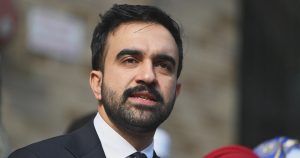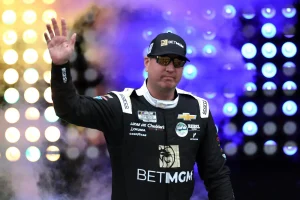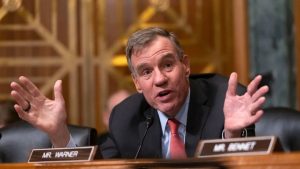The United States’ campaign finance race is spiraling out of control

The 2024 election cycle is on pace to set new records in campaign spending, breaking 2020’s record of roughly $18.3 billion. Aside from Cornel West, small donors make up less than half the donations for all major presidential candidates, indicating a disproportionate representation of big money special interests in national politics.
In 2002, Congress tried to fix the landscape of campaign finance. They passed the Bipartisan Campaign Reform Act, which fixed the loopholes in the 1974 amendments to the Federal Election Campaign Act. These amendments opened doors for soft money from state political apparatuses to direct funds to national politics, and the BCRA made such contributions illegal. The act instituted provisions that outlawed the flow of campaign donations that were out of the bounds of the FECA. It also outlawed “electioneering communications,” which are essentially ads run by unions or corporations to the benefit of a particular candidate.
However, the new and improved realm of campaign finance didn’t stay this way for long.
Thanks to a series of cases over the past two decades, small donors have become increasingly underrepresented in a campaign finance landscape dominated by wealthy donors, special interest groups and corporations. In a democracy wherein the votes of all constituents should be equally valuable, wealthy groups of voters influencing election outcomes through excessively large donations have harmed the integrity of our democratic process.
The 2010 Citizens United v. Federal Election Commission and Speechnow.org v. FEC rulings created the modern super political action committee, and it has reigned supreme as the premier destination for dark money contributions. Dark money is a political contribution with an undisclosed donor identity. To achieve this, a shadowy donor first directs donation funds to a shell company or nonprofit. These organizations are under no obligation to disclose the sources of their funding, and thus keep the donors’ identities hidden from the public.
A shell company or dark money group can give unlimited amounts of money to a super PAC, which can then spend an unlimited amount on independent expenditures. These expenditures are ads that overtly advocate for or against a political candidate. While super PACs cannot directly contribute to or coordinate with candidates, illegal cooperation between super PACs and campaigns is extremely common. Nonetheless, no super PAC has ever received retribution from the FEC for such violations.
In tandem with Citizens United and speechnow.org, the 2014 McCutcheon v. FEC ruling fully laid the BCRA to rest. The case eliminated provisions that limited an individual’s aggregate contributions over a two-year period to $117,000.
Altogether, these four cases paved the way for the campaign finance reality we see in the United States today: soft and dark money running rampant up and down the ballot, minimizing the impact of small contributions and handing the reins of democracy to an increasingly smaller and wealthier circle. To start combating these effects, we must place limits on soft money contributions. This way, we can protect the integrity of our elections and hinder the progress of the campaign finance race we are presently embroiled in.
In a reality dominated by soft money donations to campaigns, joint fundraising committees are an essential component of fundraising for both political parties and candidates. Limiting the amount an individual donor can contribute restricts the number of entities that money can be distributed to. In turn, this limits the influence of individual donors and returns it to those locally invested in a particular race or party operation. This is far more democratic, as the power is returned to individual constituents instead of wealthy donors.
Limiting individual soft money contributions would also greatly restrict the purchasing power of super PACs, which are heavily responsible for shaping the advertising narrative of a political campaign. These PACs are not responsible for disclosing their donors, with disclosures only mandated at a select few points during an election cycle. This makes the extent and source of financial resources available to a super PAC, and especially their motives, extremely dubious.
The more money they have at their disposal to flood the local airwaves with misleading political messaging, the greater impact they have in influencing voters and securing results for the special interests backing them. This can have a massive impact on both local and federal races. Ideologically focused PACs spend massively on multiple races across the country to influence the realm of ideas in Congress. Outside spending of super PACs powered by unlimited soft money has become a proven political strategy for the wealthy to influence races far beyond their own district. It must be stopped.
We’ve seen the nefarious influence of super PACs in the 2024 presidential election, too. An Elon Musk-funded super PAC, Future Coalition PAC, is sending diametrically opposed messages on Vice President Kamala Harris’ views toward the war in Gaza to predominantly Muslim ZIP codes in Michigan and Jewish ZIP codes in Pennsylvania. Musk’s own super PAC, America PAC, is running a potentially illegal campaign that promises to award $1 million a day to a lucky Donald Trump supporter who signs their petition. These are blatant attempts to harm voters’ electoral integrity, and cannot continue.
With restrictions on soft money donations, the influence of individual donors and corporations through joint fundraising committees and super PACs will be subject to greater oversight and regulation. Such restrictions, without addressing dark money, would most likely make dark money an even more popular avenue for electoral manipulation than already present.
Unfortunately, the loopholes that allow dark money to flourish occur largely outside of the FEC’s boundaries. Even with strict limits to the amount of money an individual can donate to a super PAC or joint fundraising committee, a large corporate entity or wealthy donor could just create more shell companies or nonprofits to act as “individuals” on their behalf. This would circumvent any limits, and it’s relatively easy for such entities to create a nonprofit or shell company. Nevertheless, limits on individual donations would make dark money donations dramatically more inconvenient, meaning they might still have a positive impact.
Above all, the massive increase in campaign spending seen over the past 10 years can only go so far. At the present moment, spending has spiraled out of control, to the great detriment of voters and our electoral system’s integrity. Significant steps must be taken as soon as possible to limit the influence of soft money and super PACs in our elections, otherwise the trends we have observed over the past few cycles will only grow more severe in the future.


